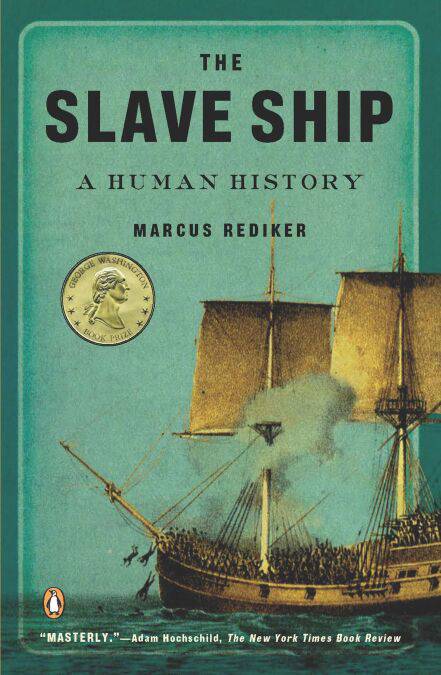
- Afhalen na 1 uur in een winkel met voorraad
- Gratis thuislevering in België vanaf € 30
- Ruim aanbod met 7 miljoen producten
- Afhalen na 1 uur in een winkel met voorraad
- Gratis thuislevering in België vanaf € 30
- Ruim aanbod met 7 miljoen producten
Zoeken
Omschrijving
In a chilling exploration of a nearly forgotten chapter of history, Marcus Rediker delves into the dark depths of slave ships in the 18th century.
In this widely praised history of an infamous institution, award-winning scholar Marcus Rediker shines a light into the darkest corners of the British and American slave ships of the eighteenth century. With meticulous detail, Rediker uncovers the harsh realities of the slave trade, shedding light on the inhumane treatment of captives and the power dynamics aboard the ships. From the economic motivations driving the trade to the efforts of abolitionists, this book reveals the birth of African American culture amidst a backdrop of horror and despair.
Drawing on thirty years of research in maritime archives, court records, diaries, and firsthand accounts, The Slave Ship is riveting and sobering in its revelations, reconstructing in chilling detail a world nearly lost to history: the "floating dungeons" at the forefront of the birth of African American culture. This is a powerful and important addition to the study of history, shedding light on a tragedy that should never be forgotten.
In this widely praised history of an infamous institution, award-winning scholar Marcus Rediker shines a light into the darkest corners of the British and American slave ships of the eighteenth century. With meticulous detail, Rediker uncovers the harsh realities of the slave trade, shedding light on the inhumane treatment of captives and the power dynamics aboard the ships. From the economic motivations driving the trade to the efforts of abolitionists, this book reveals the birth of African American culture amidst a backdrop of horror and despair.
Drawing on thirty years of research in maritime archives, court records, diaries, and firsthand accounts, The Slave Ship is riveting and sobering in its revelations, reconstructing in chilling detail a world nearly lost to history: the "floating dungeons" at the forefront of the birth of African American culture. This is a powerful and important addition to the study of history, shedding light on a tragedy that should never be forgotten.
Specificaties
Betrokkenen
- Auteur(s):
- Uitgeverij:
Inhoud
- Aantal bladzijden:
- 448
- Taal:
- Engels
Eigenschappen
- Productcode (EAN):
- 9781440620843
- Verschijningsdatum:
- 3/10/2007
- Uitvoering:
- E-book
- Beveiligd met:
- Adobe DRM
- Formaat:
- ePub

Alleen bij Standaard Boekhandel
+ 12 punten op je klantenkaart van Standaard Boekhandel
Beoordelingen
We publiceren alleen reviews die voldoen aan de voorwaarden voor reviews. Bekijk onze voorwaarden voor reviews.








